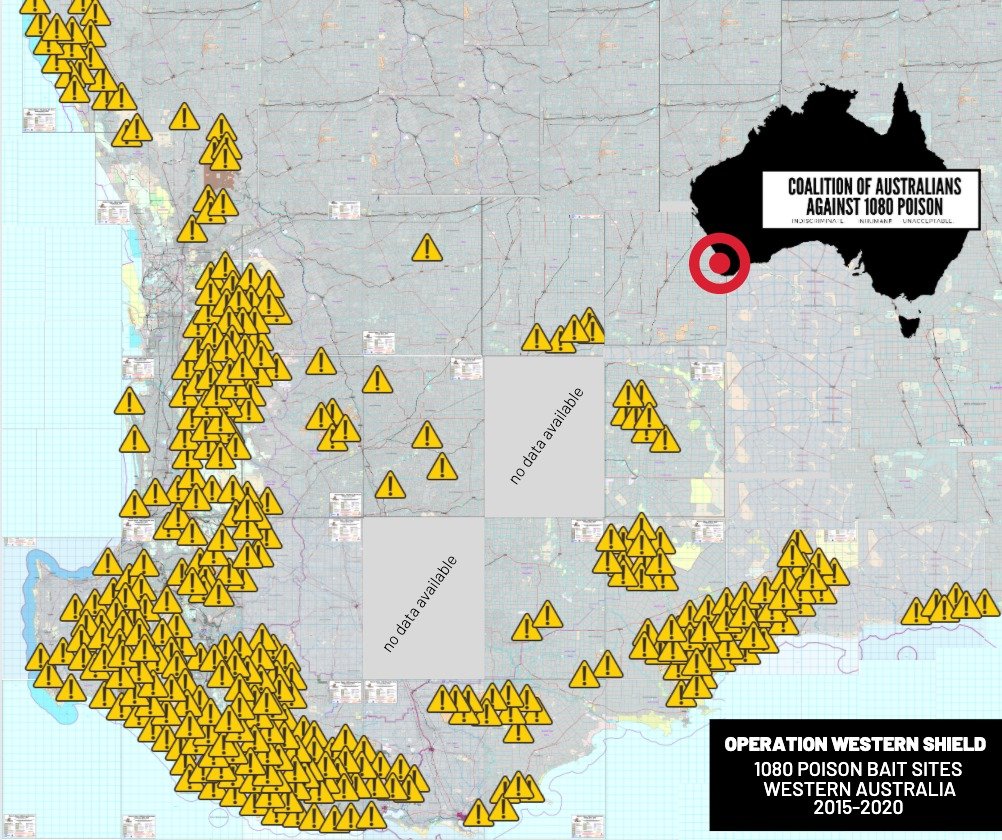Press Release
Wildlife department declares entire state too dangerous for dogs outdoors
Image: Western Australian Parks and Wildlife Service.
1 October 2021: A recent warning published by the Western Australian Government’s Parks and Wildlife Service has attracted the outrage of concerned travellers as the state is declared too dangerous for dogs.
1080 poison has a long and controversial history in every Australian state and territory. Never before, however, has a government authority issued a state-wide warning indicating that the presence of 1080 has made it too dangerous for travellers to take their dogs on holiday.
That 1080 kills dogs isn’t a secret, as much as the government and its suppliers would prefer it to be. In fact, of all animals dogs are the most sensitive to 1080. The Western Australian Government openly admits as much.
Now, the very same government is holding the travelling public to ransom by making the entire western state virtually deadly to dogs – and with a poison banned in nearly every nation on earth, no less.
Alex Vince, Coalition campaign director.
The program which prompted the department to issue its draconian “dead dogs” warning is Western Shield, an enormous and ongoing baiting program which dropped its first deadly poison payload in 1996. The same year, production of the baits alone was estimated to cost over half a million dollars, double the price of the second-highest expenditure of the program. It is Western Australia’s flagship killing in the name of conservation program.
Between 2015 and 2016 alone, the program was responsible for baiting close to 4 million hectares of Western Australia with over one million 1080-laced baits. Outdoing this, one of the WA Department of Environment and Conservation’s “top 10 deliverables by 2029” is a “three-fold expansion” of the program to cover “more than 10 million hectares” with 1080.
The program enjoys the corporate sponsorship of aluminium manufacturer Alcoa, mining giant Tronox and nickel producer Western Areas Ltd. Alcoa alone provided close to $3 million to the operation between 1996 and 2015.
The extent of baiting carried out under Operation Western Shield. Source: The Coalition Against 1080 Poison.
Like many others, Operation Western Shield has long relied on the myth that native animals in Western Australia have an alleged immunity to the impact of 1080 poison. This legend is based on the presence of several plant species which produce fluoroacetate. It is based on the evolutionary defence mechanisms some native pea-producing plant species have developed against herbivory (i.e., the consumption of their leaves or peas by herbivores).
In reality, animals in Australia vary significantly in their sensitivity to 1080 – none have developed innate immunity or resistance to it. This is amply shown by recent cull targets published by the Tasmanian Government indicating its ongoing use to kill inconvenient native Australian mammals.
The myth that natives are immune to 1080 is just that: a myth. The same government responsible for Western Shield have said so in a document the department disseminates to primary schools across the state. They say, in no uncertain terms, that native animals ‘are not immune’ to 1080. The helicopters hovering above Western Australia aren’t dropping the peas these plants produce; they’re dropping a poison our own Federal Government cites as a chemical of national security concern.
In a comment posted on the department’s Facebook page, the Coalition condemned the Parks and Wildlife Service:
“This is your chance to acknowledge the legitimate concerns Australians citizens have about the use of this indiscriminate, inhumane and unacceptable method of wildlife control. We strongly suggest that you lead the country in phasing out and ultimately removing its use to bring your department in line with the overwhelming majority of nations who have done so“.


